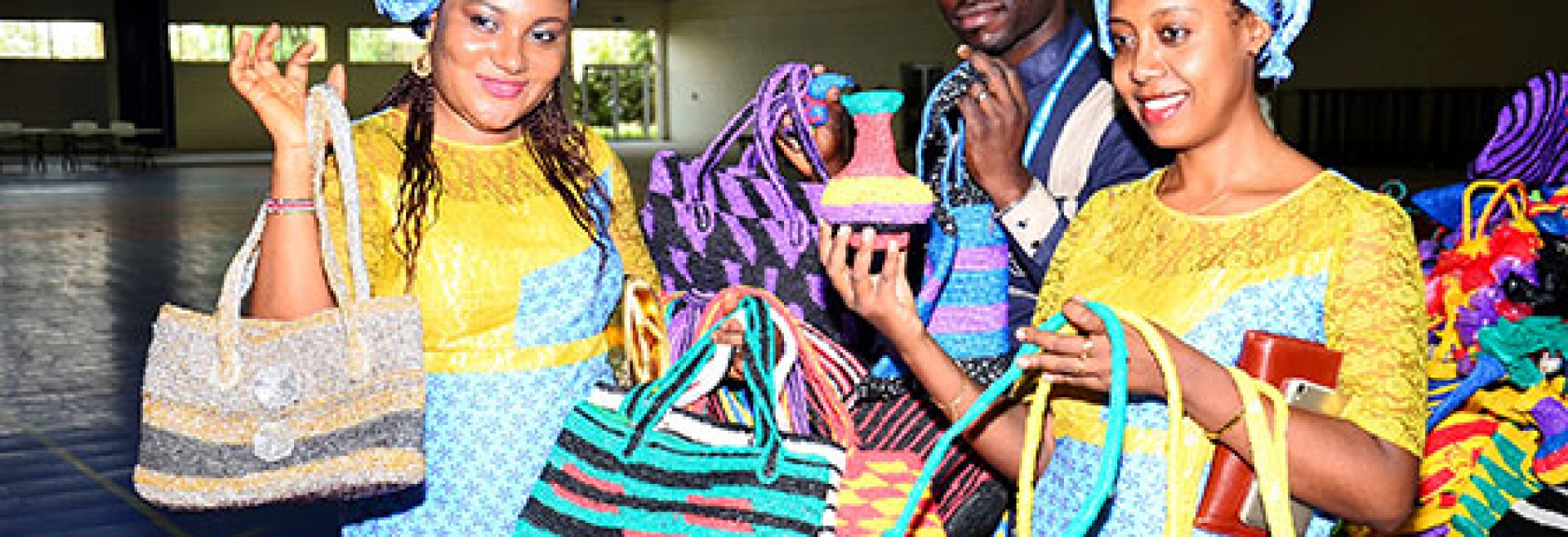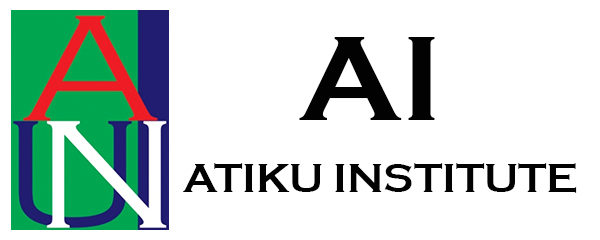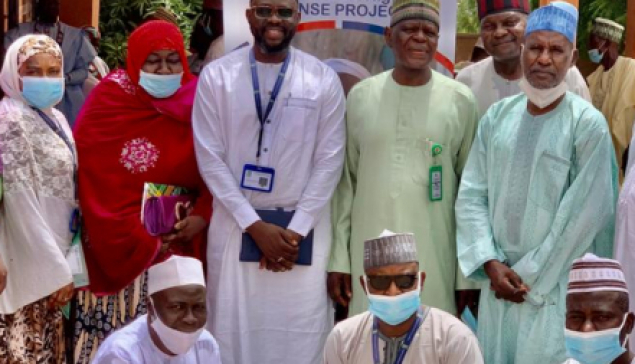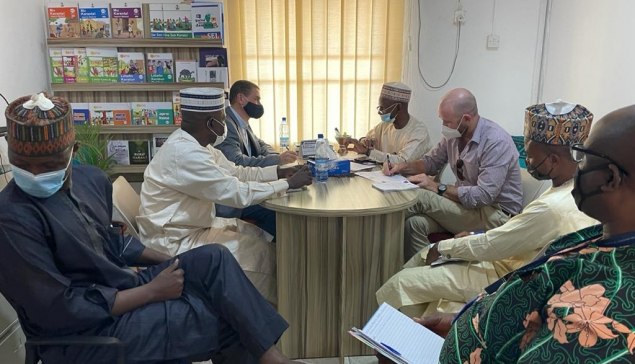
300 IDPs Empowered Through UNHCR-backed Waste-to-Wealth Program
Three hundred displaced women and their hosts have formally ended six weeks of training in crocheting with nylon yarn.
The Livelihood Project was supported by the UN High Commission for Refugees in collaboration with AUN, the Adamawa State Emergency Management Agency, and its federal counterpart, the National Emergency Management Agency.
At the closing ceremony held at AUN on February 25, Grant Administrator for AUN, Mr Audu Liman, who was representing President Ensign, said that the women are among the lucky few beneficiaries of “this significant investment by the UNHCR and the technical support by AUN.”
As part of the incentive to motivate the trainees, they were given a meal a day during the six weeks training duration. The trainees also received free materials for the training, including crocheting needles and scissors, as well as nylon bags. They also received free transportation to and from the training center.
Mr. Liman encouraged them to continue to utilize the skills they got from the training to impact the lives of their families.
The Head of the UNHCR Sub Office in Bauchi, Mr. Cesar Tshilombo, said the UNCHR developed a partnership with AUN for the project and recognized that livelihood is a strong protection tool, especially during times of crisis or insurgency. He said the expectation is that the trainees will become self-reliant, and so will be able to protect themselves and can contribute meaningfully to the society.
The program coordinator, Ms Jennifer Che, said cleaning up the environment and recycling plastic waste are some of the goals that the program has achieved. “Just in six weeks, we have reduced from the environment 150,000 nylon bags.”
Che also spoke of the impact of the program on the women, saying that it will create jobs for local women in the surrounding communities, empowering them to make their family lives better, and to improve themselves.
The program has also boosted the morale of the IDPs. Che remarked that at the start of the program, it was noticed that some of the women were “subdued” and “shy” but as the program progressed, they began to open up. “I think we can say that we have given you a little bit of hope.”
Seventy-five of the local women who are members of the Waste-to-Wealth program benefited since they received income in helping as trainers. “Our members now recognize that it is not just in selling the products that they can get income, but training as well.”
Head trainer, Mrs. Esther Emmanuel Tsamdu, said her greatest pleasure is seeing the co-trainers become confident and skilled individuals who enjoy their work. She was one of the first women to be trained in crocheting with yarn made of waste nylon bags. “I’m proud to say that I am now one of their main leaders. I feel blessed to have been able to turn so many women’s lives.”
Also during the event, Mrs. Tsamdu said that the social impact created among the women is inestimable. “Before they were locked inside their houses, but now they are mingling with people and learning different skills.”
A participant, Mrs. Victoria Iliya, a mother from Gwoza LGA of Borno State, said, “I am happy to see myself learning these skills, I never thought that I can do such things…. I learned bag making, baskets, and key holders. I will put to proper use all of what I have learned to help my family. I will also teach some people these skills.”
Another participant, Naomi Mayo, from Jimeta thanked those who made the program a success. “To all agents of wealth creation, I will show more of this appreciation to you by putting to good use what I learned.”
Cecelia Yohanna, a supervisor/trainer expressed profound gratitude to the participants. “I am very grateful to the women for their support and cooperation. They have shown us they can do more and as such we are always ready for them anytime.”
The event was very colorful and featured entertainment by the Adamawa Cultural Troupe. Each of the trainees and their trainers were presented with a certificate and a training kit. There was a display and sale of the products made by the IDPs.
By Benjamin Yakubu


